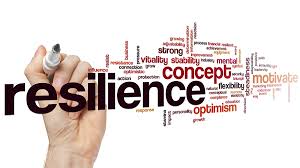podcast link:
https://anchor.fm/boscom/
Last week end we reflected on
Everyday spirituality. This weekend we shall continue our reflections on
spirituality, especially the impact of dualism on spirituality.
….
Thomas Kuhn, a social scientist at the University of Chicago,
wrote a book in 1962 entitled The
Structure of Scientific Revolutions that soon became a classic in social sciences.
That book introduced the concept of Paradigms,
paradigm shifts and resistance to paradigm shifts.
Twenty years later the physicist Fritjof Capra wrote a book called The Turning Point in which he tried to explain Kuhn’s concepts in a lay person’s language. Capra focused on two paradigms. One, the Dualistic which influenced thought and behaviour for thousands of years, to which was added the mechanistic understanding in the Modern Era to form the Dualistic-Mechanistic paradigm. The paradigm that has emerged recently is the holistic to which is added the ecological to form the Holistic-Ecological paradigm.
Paradigms and paradigm changes come handy when discussing
everyday spirituality.
THE DUALISTIC-MECHANISTIC PARADIGM
The
Dualistic (from Latin Duo) paradigm
splits reality into two and places one over the other and often against the
other. The split between matter and energy, body and spirit, reason and passion
are examples. Dualism influenced culture
and society, as well as religion and spirituality, for thousands of years and
laid the foundations for patriarchal domination.
The
mechanistic understanding split reality not only to two, but many bits and
pieces. Like the clock, the classic model of a machine, which works perfectly
when every part in it works in orderly conjunction with every other part, the
whole universe, consisting of bits and pieces of matter, works perfectly when
everything in it is moving according to a pre-designed harmonious order. Order
and harmony were considered essential to proper order in society.
CHANGE SEEN AS EVIL,
PERMANENCE AS GOOD
We know that much chaos and confusion accompany change, as happens, for example, when governments change. Permanence, the opposite of change, maintains order, stability and harmony. Societies for whom order and harmony were cardinal virtues, as also those in power, saw change which undermines these as evil. Change because it is evil had to be resisted. Permanence and its constituents –stability and order—were to be promoted to maintain peace and harmony. Change against stability can be seen as the primordial split that gave rise to hierarchy and patriarchy, as well as the honour given to tradition.
Denigration of
the Body
Change can be seen as the basis for the hugely influential split between body and soul/spirit. The body – the material element – decays and disappears and so is evil. The soul or spirit which maintains one’s identity even after the body decays and disappears is good. The body was pitted against the spirit as inferior and dangerous. This view of body and spirit had a profound impact on the understanding and practice of spirituality.
Spiritual doctrines and disciplines developed a negative and
even antagonistic attitude toward the body. The body came to be considered an
enemy of spirit and needed to be subjugated and punished so that the soul could
be strengthened. Since sexuality is an important dimension of our embodiment,
it was considered as something dangerous to the spirit and even evil. Since
marriage involved sexuality, those who embraced virginity or celibacy were
considered to be living and practising a superior, holier way of life. Bodily
asceticism was seen as essential for triumph of the spirit.
Reason over
Emotion
The Greek philosopher Plato and his student Aristotle helped to further entrench dualistic notions and their consequences. They proposed that thinking concerned with pure reasoning is superior or more advanced than thinking permeated by sensory input and emotions. Sensations and emotions bring about turbulence and instability and so are bad and inferior. Reason contributes to order and stability and so is good and superior.
Subjugation and
Oppression of Women
The dualistic split between body and spirit, reason and
emotions and placing them hierarchically one over the other had a profound
impact on the way women and men were viewed.
Emotion and bodily changes (which were considered evil) were
considered to be mainly female experiences while reason, associated with the
spirit (and considered good), was attributed to the male. Good, thus, became
identified with the male and evil with the female. The good had to triumph over
evil. Reason had to triumph over passion. Hence man had to dominate woman. (Please
note: This is not my thought. I am only presenting the notions and beliefs
which were present.)
An extreme consequence of this ideology was identification
of women as embodiment of evil, Satan. The witch-burnings of the Middle Ages,
and even later, was a direct result of this identification.
Patriarchy
This kind of
dualistic and hierarchical notions attributing goodness, reason and superiority
to men led to patriarchy – a philosophical, cultural and political system in
which men controlled knowledge and resources, and determined what role women
can and cannot play in society. The evolution of patriarchy had disastrous
consequences for the treatment of women in society and Church as well.
For
introspection
- What do the ideas
presented here about dualism, body, sexuality, patriarchy, evoke in you?
- Can you recognize
how these are impacting your life- your beliefs, attitude and behavior?
- Can you recognize
the influence these have influenced our understanding and practice of
everyday spirituality?
In the Book of Genesis we read how God
created men and women as equal and after creating them he proclaimed his
delight in them. “Very good!” he said.
Jesus had a profoundly different attitude
toward body, sexuality and women, very different from the prevailing notions
and attitudes in his society. Can you recognize how he was different? Which
gospel scenes come to mind in this context? You could spend some time talking
to him about whatever is evoked in you by this podcast.
Jose Parappully SDB, PhD






































